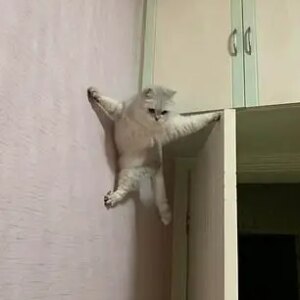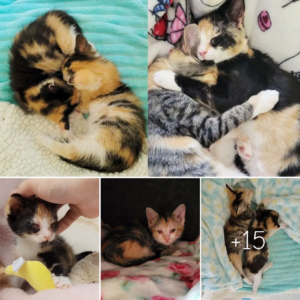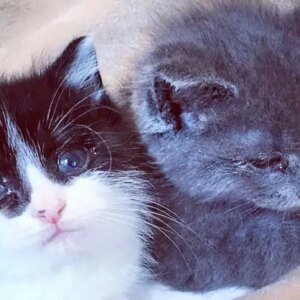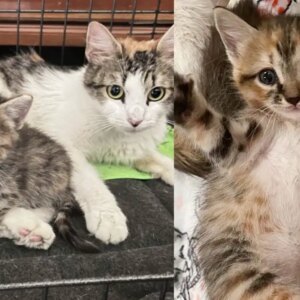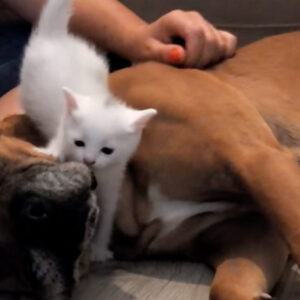Are you puzzled by your cat sneezing? It’s not uncommon for our feline friends to sneeze occasionally, but when it becomes persistent, it may be a cause for concern. There are several reasons why your cat sneezes and it’s essential to understand the underlying cause.
Allergies and irritants, respiratory infections, foreign objects in the nose, dental issues, environmental factors, chronic nasal conditions, and even stress and anxiety can all contribute to your cat’s sneezing. Identifying the root of the problem is crucial in ensuring your furry companion receives the appropriate care.
In this article, we will delve into each potential cause of sneezing in cats so that you can better understand what might be affecting your beloved pet. Remember that while some cases may resolve on their own with time, others require veterinary attention.
So let’s dive in and uncover why your cat is experiencing those annoying sneezes!
Allergies and Irritants
Is your cat sneezing constantly? It could be due to allergies or irritants in their environment! Just like humans, cats can also suffer from pollen allergies and other common irritants.
Pollen allergies are quite common in cats, especially during the spring and summer months when plants release large amounts of pollen into the air. Your furry friend may start sneezing and have itchy eyes or a runny nose when exposed to these allergens.
In addition to pollen, there are several other common irritants that can make your cat sneeze. Dust mites, mold spores, and certain chemicals found in cleaning products can all trigger allergic reactions in cats. If you’ve recently switched to a new brand of litter or started using a different air freshener, these changes might be causing your cat’s sneezing fits.
To help alleviate your cat’s symptoms, try keeping them indoors during peak pollen times and using an air purifier to reduce airborne allergens. Regularly vacuuming and dusting your home can also help minimize exposure to irritants like dust mites. If you suspect that a specific product is causing your cat’s allergies, consider switching back to its previous brand or opting for hypoallergenic alternatives.
Remember, if your cat’s sneezing persists or is accompanied by other concerning symptoms such as coughing or difficulty breathing, it’s best to consult with a veterinarian for proper diagnosis and treatment options.
Respiratory Infections
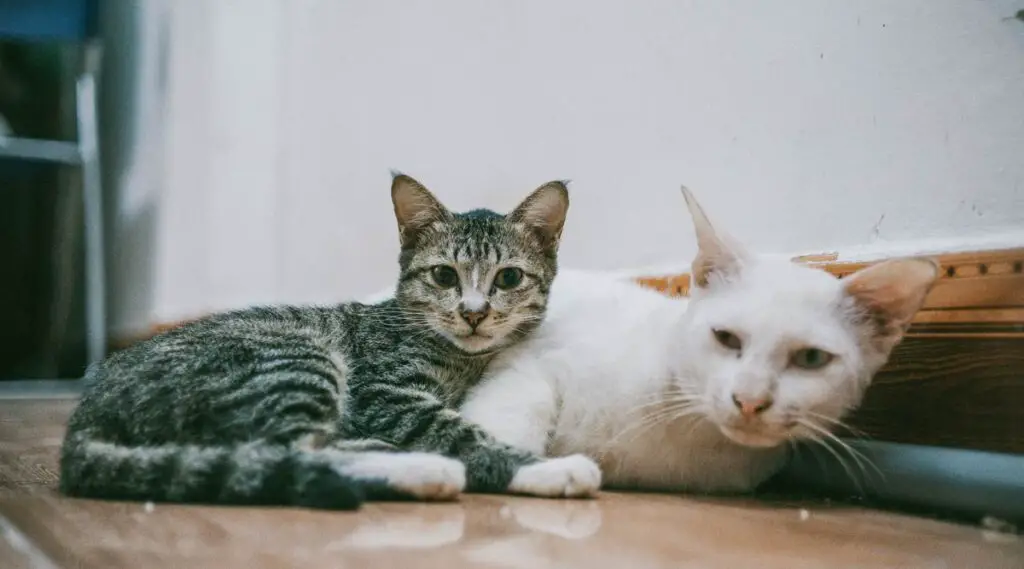
Respiratory infections can cause sneezing in our feline friends. Upper respiratory tract infections, which are commonly caused by viral infections, can lead to sneezing in cats. These infections affect the nose, throat, and sinuses of our furry companions, resulting in irritation and inflammation that triggers sneezing.
Viruses that commonly cause upper respiratory tract infections in cats include feline herpesvirus and calicivirus. These viruses are highly contagious and can be transmitted through direct contact with an infected cat or through contaminated objects such as food bowls or bedding. Once a cat is infected, the virus replicates within their respiratory system, leading to symptoms like sneezing, nasal discharge, coughing, and congestion.
It’s important to note that while most upper respiratory tract infections in cats are caused by viral agents, bacterial infections can also occur as secondary complications. In these cases, antibiotics may be necessary to treat the infection.
If your cat is experiencing frequent or persistent sneezing along with other symptoms like runny nose or coughing, it’s best to consult your veterinarian for a proper diagnosis and treatment plan. They may recommend antiviral medications or supportive care measures to help alleviate your cat’s symptoms and promote recovery.
Foreign Objects in the Nose
Foreign objects lodged in the nose can be a sneeze-inducing nuisance for our feline companions. Nasal obstructions, such as small toys, grass seeds, or even blades of grass, can cause irritation in your cat’s nasal passages, leading to frequent sneezing. When these foreign objects enter the nose and become stuck, they trigger a reflex response from your cat’s body to expel them through sneezing.
One common symptom of nasal obstructions is nasal discharge. You may notice that your cat has watery or thick mucus coming out of their nose. This discharge is the body’s way of trying to flush out the foreign object and clear the nasal passage. It is important not to ignore this symptom as it could indicate a more serious issue.
If you suspect that your cat has a foreign object lodged in their nose, it is crucial to seek veterinary attention promptly. The veterinarian will examine your cat’s nasal passages using specialized equipment and may need to sedate them for removal if necessary. Remember never to try removing any foreign object yourself as you could unintentionally cause harm.
By being aware of potential foreign objects and taking swift action when necessary, you can help alleviate your cat’s sneezing and ensure its overall health and well-being.
Dental Issues
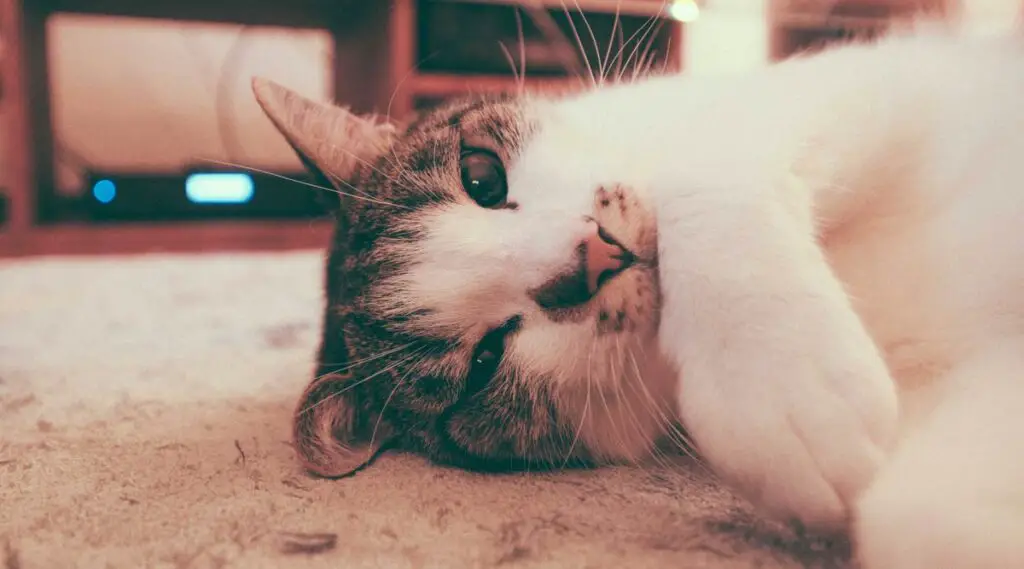
One of the most painful experiences for our feline friends can be when their teeth start to ache and they find it difficult to chew their favorite treats. Dental issues, such as tooth decay and gum disease, can cause cats to sneeze. Just like humans, cats are also susceptible to dental problems that can affect their overall health.
Tooth decay in cats occurs when bacteria forms plaque on the teeth, leading to cavities. If left untreated, this can cause severe pain and discomfort for your furry friend. Gum disease is another common dental issue in cats. It starts with inflammation of the gums and can progress to periodontal disease, which affects the tissues supporting the teeth.
When a cat has dental problems, it may experience difficulty eating or show signs of discomfort while chewing. Sneezing can occur as a result of inflamed sinuses due to tooth decay or gum disease.
Regular dental care is crucial for maintaining your cat’s oral health. Brushing their teeth regularly with a pet-safe toothpaste and providing them with appropriate chew toys can help prevent tooth decay and gum disease. If you notice any signs of dental issues in your cat, such as bad breath or bleeding gums, it’s important to consult with your veterinarian for proper diagnosis and treatment options.
Environmental Factors
Cats may encounter various environmental factors that can contribute to their frequent sneezing and discomfort. Indoor pollutants and seasonal changes are two common culprits that can trigger these symptoms in cats.
Indoor pollutants such as dust, mold, pollen, and cigarette smoke can irritate a cat’s respiratory system, leading to sneezing fits. Cats are known for their curious nature, often exploring every nook and cranny of the house. This puts them at risk of inhaling these pollutants on a regular basis. Ensuring a clean and well-ventilated environment can help reduce their exposure to these irritants.
Seasonal changes also play a role in triggering cat sneezing. Just like humans, cats can be affected by allergies during certain times of the year. Pollen from trees, grasses, and flowers is particularly problematic for cats with sensitivities. As the seasons change, these allergens become more prevalent in the air, causing cats to experience increased sneezing episodes.
If your cat is constantly sneezing or showing signs of discomfort, it is important to monitor their environment closely. Regular cleaning, using air purifiers or filters, and keeping windows closed during peak pollen times can all help minimize exposure to indoor pollutants and seasonal allergens. Additionally, consulting with a veterinarian may provide further insight into your cat’s specific triggers and appropriate treatment options.
Chronic Nasal Conditions

Allergies can result in chronic nasal conditions that cause discomfort and frequent sneezing. If your cat is experiencing constant sneezing and nasal congestion, it could be due to a chronic nasal condition.
One common condition is feline rhinitis, which refers to inflammation of the nasal passages. This can be caused by various factors, including allergies, infections, or irritants in the environment.
When your cat has a chronic nasal condition, they may exhibit symptoms such as persistent sneezing, nasal discharge, and difficulty breathing through their nose. They might also have reduced appetite or show signs of discomfort. It’s important to note that these symptoms can vary depending on the underlying cause of the condition.
To determine the exact cause of your cat’s chronic nasal condition, it’s best to consult with a veterinarian. They will conduct a thorough examination and may recommend additional tests such as blood work or imaging studies.
Treatment options for chronic nasal conditions include managing any underlying allergies or infections, providing supportive care like humidifiers or saline rinses for the nose, and in some cases, surgery may be necessary.
Overall, if your cat is constantly sneezing and showing signs of nasal congestion, it’s essential to seek veterinary attention to identify and address any potential chronic nasal conditions they may have.
Stress and Anxiety
If your feline friend seems stressed or anxious, it’s important to address their emotional well-being to help alleviate any discomfort they may be experiencing. Stress management plays a crucial role in keeping your cat healthy and happy.
Cats can become stressed due to various factors such as changes in their environment, social conflicts with other pets, or even separation anxiety when you’re away from home. Identifying the triggers of anxiety is key to managing your cat’s stress levels.
One effective way to manage stress in cats is by creating a calm and safe environment for them. Provide hiding spots where they can retreat when feeling overwhelmed, and ensure they have access to toys and activities that stimulate their natural instincts. Additionally, maintaining a consistent routine and providing regular playtime can help reduce anxiety.
Another important aspect of stress management is reducing potential anxiety triggers. This may involve minimizing exposure to loud noises, ensuring they have a quiet space to relax, and avoiding sudden changes in their routine or environment.
In some cases, professional help may be necessary if your cat’s stress levels persist or worsen despite your efforts. A veterinarian or animal behaviorist can provide guidance on additional techniques for stress reduction such as pheromone therapy or behavior modification exercises.
By addressing your cat’s emotional well-being through stress management techniques and identifying anxiety triggers, you can help alleviate their discomfort and promote overall health and happiness.
When to Seek Veterinary Care
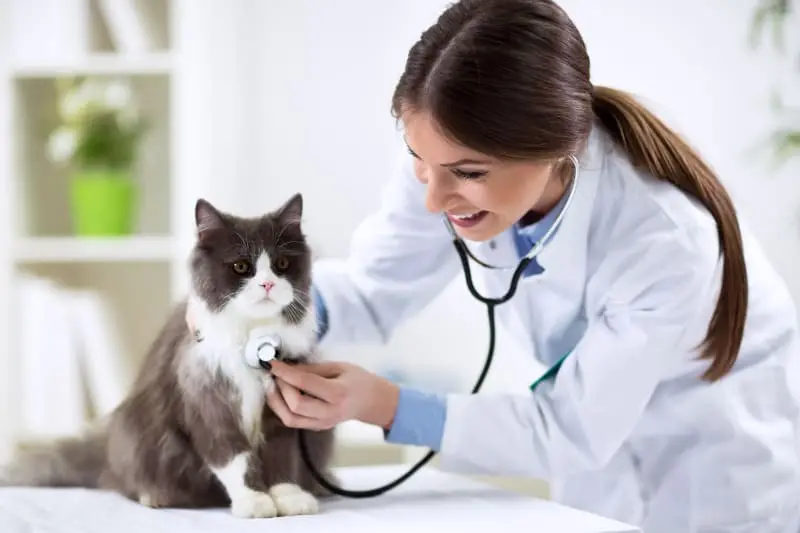
Knowing when to seek veterinary care for your furry friend is essential in ensuring their health and well-being. When it comes to your sneezing cat, there are a few key indicators that can help you determine if a visit to the vet is necessary.
First and foremost, if your cat’s sneezing persists for more than a couple of days or is accompanied by other symptoms such as nasal discharge, coughing, or wheezing, it’s time to make an appointment. These could be signs of an underlying infection or respiratory issue that needs medical attention.
In addition, if you notice any changes in your cat’s behavior or appetite along with sneezing, it’s important to consult with a veterinarian. Cats are masters at hiding discomfort and illness, so any noticeable changes should be taken seriously.
However, not all cases of sneezing require immediate veterinary care. If your cat has occasional sneezes without any other symptoms and appears otherwise healthy and energetic, you can monitor them at home. Keep an eye out for any worsening of symptoms or prolonged episodes of sneezing.
It’s also worth considering common household irritants that could be triggering your cat’s sneezing. Dust, pollen, cigarette smoke, and cleaning products – can all contribute to respiratory issues in cats. Take steps to minimize exposure to these irritants by keeping your home clean and using pet-friendly products.
Ultimately, always trust your instincts as a pet owner. If something seems off or you’re unsure about whether veterinary care is necessary for your sneezing cat, don’t hesitate to reach out for professional advice. Your veterinarian is there to help keep your feline companion healthy and happy.
Conclusion
If your cat is sneezing, it could be due to a variety of reasons. Allergies and irritants, respiratory infections, foreign objects in the nose, dental issues, environmental factors, chronic nasal conditions, and even stress and anxiety can all contribute to sneezing in cats.
If your cat is experiencing persistent or severe sneezing, it’s important to seek veterinary care. A thorough examination by a veterinarian can help determine the underlying cause and provide appropriate treatment for your furry friend’s sneezing issue.
Read more:
How To Take Care When Cat Pregnant
